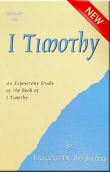


In the same manner, when one comes into a city to which he is a stranger, he ought to consider its situation, how it lies as to the winds and the rising of the sun.… These things one ought to consider most attentively, and concerning the waters which the inhabitants use, whether they be marshy and soft, or hard, and running from elevated rocky situations, and then if saltish and unfit for cooking, and the ground, whether it be naked and deficient in water, or wooded and well-watered, and whether it lies in a hollow or confined situation, or is elevated and cold and the mode in which the inhabitants live, and what are their pursuits, whether they are fond of drinking and eating to excess, and given to indolence, or are fond of exercise and labor.…įor if one knows all these things well, or at least the greater part of them, he cannot miss knowing, when he comes into a strange city, either the diseases peculiar to the place, or the particular nature of common diseases, so that he will not be in doubt as to the treatment of the diseases, or commit mistakes, as is likely to be the case provided one has not previously considered these matters. We must also consider the qualities of the waters, for as they differ from another in taste and weight, so also do they differ much in their qualities.

Then the winds, the hot and cold, especially such as are common to all countries, and then such as are peculiar to each locality. Whoever wishes to investigate medicine properly, should proceed thus: in the first place to consider the seasons of the year, and what effects each of them produces, for they are not all alike, but differ from themselves in regard to their changes. This dialectical, materialist, and ecological approach to epidemiology (from the ancient Greek epi, meaning on or upon, and demos, the people) was exemplified by the classic Hippocratic text Airs Waters Places (c. “The old Greek philosophers,” Frederick Engels wrote in Socialism: Utopian and Scientific, “were all born natural dialecticians.” 1 Nowhere was this more apparent than in ancient Greek medical thought, which was distinguished by its strong materialist and ecological basis. Hannah Holleman is a director of the Monthly Review Foundation and an associate professor of sociology at Amherst College. Brett Clark is associate editor of Monthly Review and a professor of sociology at the University of Utah. John Bellamy Foster is the editor of Monthly Review and a professor of sociology at the University of Oregon.


 0 kommentar(er)
0 kommentar(er)
